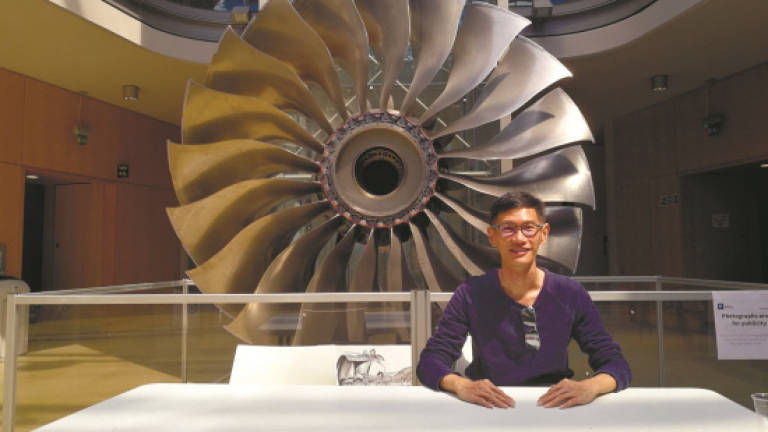Sustainable engineering

THE message from the World Economic Forum earlier this year was loud and clear; the fourth industrial revolution is upon us, and it is about to unleash wholesale changes like we have never experienced before.
Driverless cars and the increased role of robots in society are just part of the changes that we would be ushering in.
However, the dawn of the fourth industrial revolution has to strictly comply with other initiatives that are being pursued now – such as sustainability – in line with climate change agreements.
The challenge of balancing the onslaught of these advancements in technology has to be juggled with proper management of energy that ensures sustainable growth while ensuring profitability.
As such the roles of engineers are also expected to evolve at an exponential rate. It was with all these in mind that Monash University Malaysia's Masters in Advanced Engineering (MAE) was crafted.
Associate Prof Dr Hung Yew Mun who is the coordinator of the MAE programme accentuated the benefits of taking up this course.
"Sustainability is still at its infancy stage in Malaysia. The government encourages the adoption of the ISO 50001 framework to improve the energy management of organisations," he said.
"The target is to have at least 100 companies become ISO 50001 certified companies in Malaysia by the end of this year. The requirement is for businesses to establish and implement sustainable energy management systems," he added.
As is the case with any new initiative, the lack of qualified manpower in the field to execute these goals are always a problem.
"We have a lack of expertise in areas related to sustainability in Malaysia. This is a genuine opportunity for graduates, as there is a bright future in this field," said Hung.
The programme consists of two core units, four specialised units, and two elective units to develop students in the area of energy and sustainability with the ability to develop solutions for complex engineering problems.
Students will be given guidance on engineering entrepreneurship, where they will learn how to construct a business plan that balances technicality with soft skills.
"The goal of this unit is to impart an evidence-based methodology for those who wish to build start-ups or start their own businesses. However, the knowledge is also applicable for them to apply when working for organisations," added Hung.
As a programme that includes the participation of teaching staff from different disciplines of engineering, MAE students will have an opportunity to get personal guidance from lecturers in an intellectually stimulating environment, pushing students out of their comfort zones to come up with original ideas.
Students will have a taste of real life working experience as Monash has collaborations with countless organisations that will provide industry engagement. Among the companies collaborating with Monash are Intel, Gamuda, Petronas, Maxis, Western Digital, Shell, Cargill, Sunway Construction, Favelle Favco, ABB, CCM Pharmaceuticals, and Bacfree.
The MAE programme is targeted towards engineering graduates with Bachelor of Engineering degrees from recognised tertiary institutions, with a minimum average grade of 70%, or the equivalent of a second class upper grade.
This one-year programme consists of two semesters, with four subjects in each semester.
The duration of the programme for part-time students is two years, with two subjects in each semester.